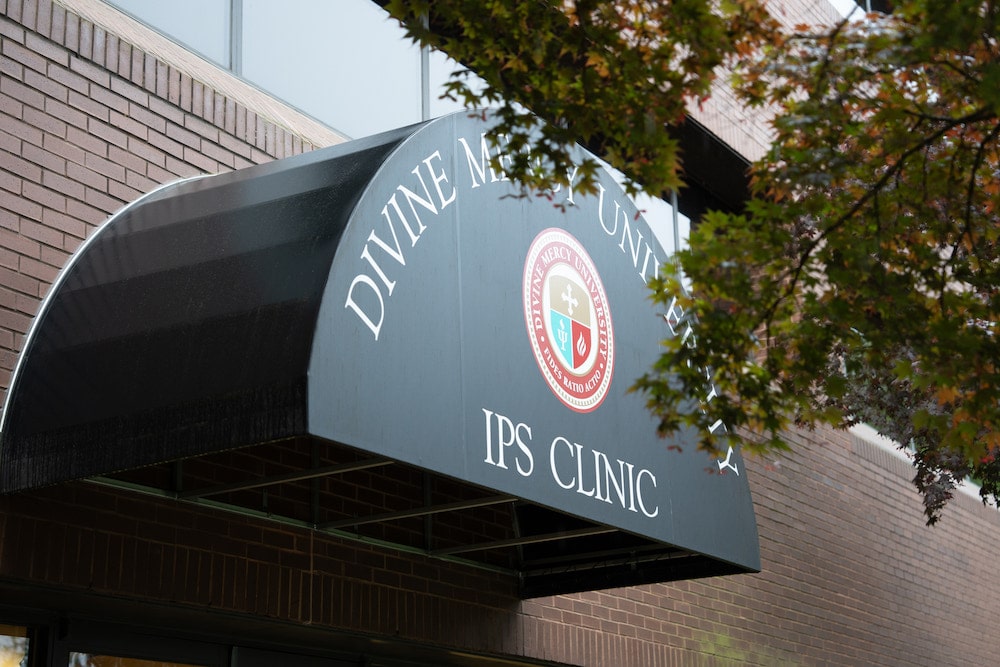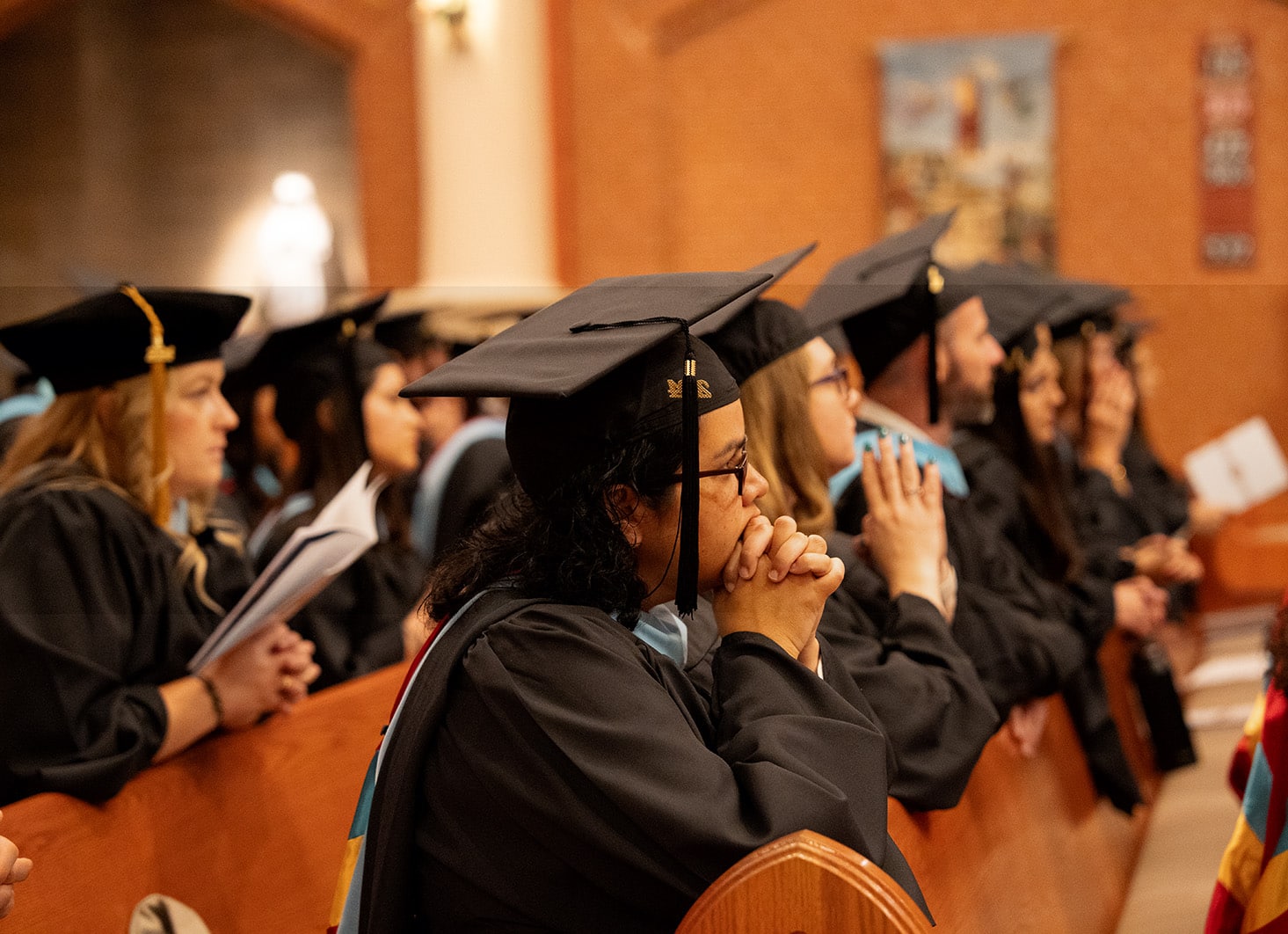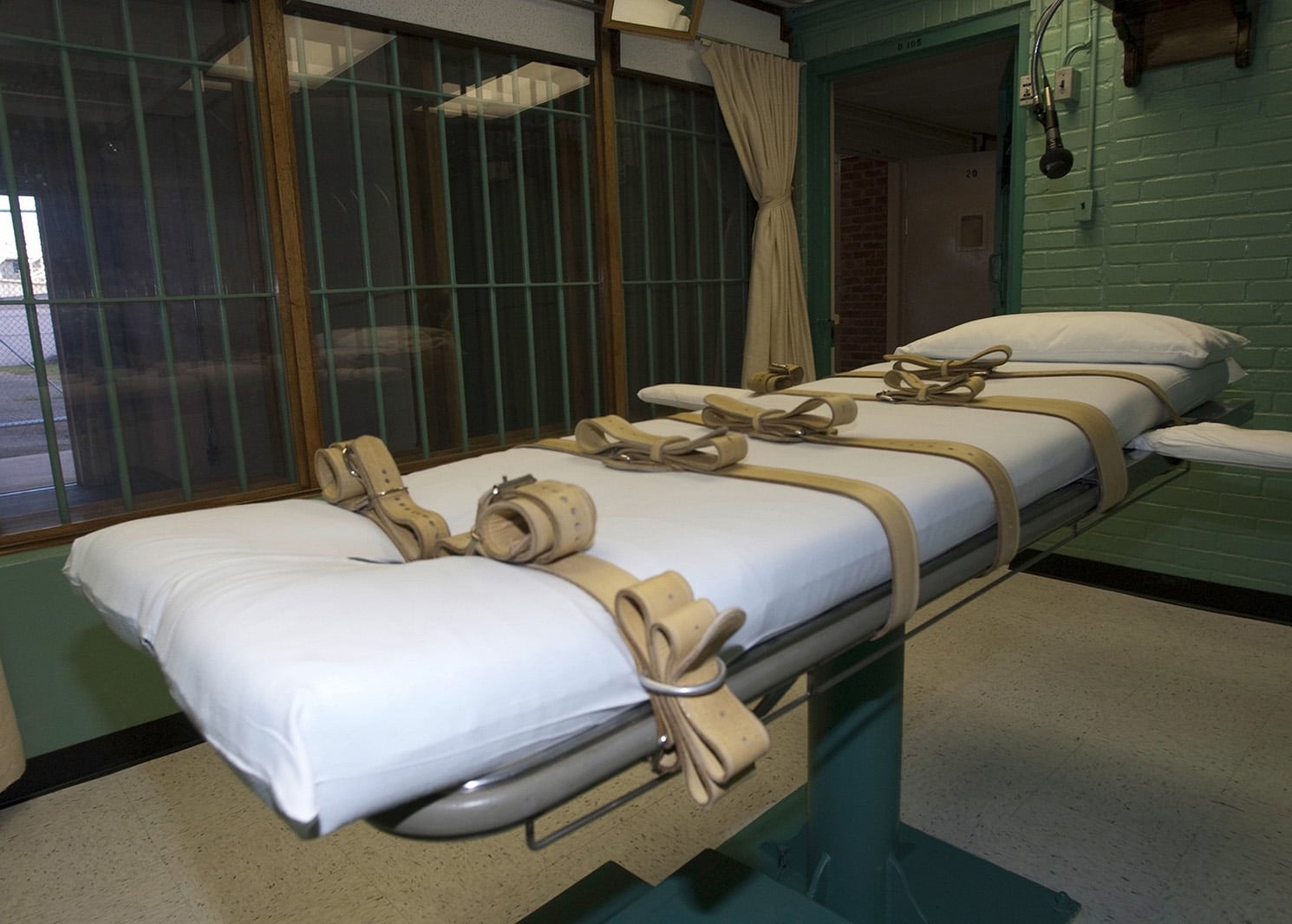A Catholic graduate university of psychology and counseling is looking to the future as it celebrates 25 years of forming students with an education grounded in the inherent dignity and worth of the human person.
“It’s really been God’s providence that has carried us through and puts us in a unique position to serve the Church and serve so many souls who need help,” Legionary of Christ Father Charles Sikorsky, president of Divine Mercy University (DMU) in Sterling, Virginia, told Our Sunday Visitor.
Today, DMU offers a variety of degrees it says are rooted in faith and based in science: a doctoral degree in clinical psychology, a Master of Science degree in psychology, a Master of Science degree in counseling and even a certificate in spiritual direction. The university, which is affiliated with the Legionaries of Christ, counts 548 current students and 974 alumni with 182 degrees awarded in 2024.
As a university, it is committed to “the scientific study of psychology with a Catholic understanding of the person, marriage and the family” and hopes to serve as “an international center for scholarship and professional education dedicated to the study of the mind and soul grounded in an integral Catholic-Christian view of the human person.”

DMU traces its beginnings back to 1997, and began by providing continuing education for licensed mental health professionals. In 1999, when it was known as the Institute for the Psychological Sciences, it started providing instruction leading to a master’s degree. The next year, the university awarded its first degrees.
A mental health crisis
DMU’s founders — a group of mental health professionals, academicians and clinicians — anticipated a great need, Father Sikorsky said.
“We have a terrible mental health crisis that’s growing, spiraling out of control,” he said.
According to the U.S. Centers for Disease and Control (CDC), more than 1 in 5 adults live with a mental illness and more than 1 in 5 teenagers (ages 13-18) either struggle or have struggled with a seriously debilitating mental illness.
The secular response, Father Sikorsky said, comes up short.
“It kind of reduces the person — the human person — to just the biological and the neurological, which forgets about the soul, right?” he said.
Amid the growing crisis, the U.S. bishops announced a campaign last year to raise awareness around mental health, remove the sense of stigma for those struggling and advocate for help. Father Sikorsky called the initiative “a great step forward.”
“And we’re going to need the soldiers and the army to carry it out, right?” he asked. “They need us as members of the mystical body of Christ to take that invitation and really come up with ways to help people heal, accompany people in their struggles.”
Inspiration from a saint
Father Sikorsky identified the woman who led the effort to found DMU as Doctor Gladys Sweeney, who later served as dean. She drew her inspiration from Pope St. John Paul II.
“He’s not just a good philosopher, a holy pope, he’s a good psychologist,” he remembered her saying. “She made that comment when reading some of his works about the human person.”
Today, DMU centers its mission around the human person. The university is dedicated “to the renewal of the Catholic-Christian intellectual tradition and the integration of the theoretical and empirical bases of psychology, professional counseling and related fields, with a Catholic-Christian view of the human person.”
Looking back
Under the leadership of Father Sikorsky, who was elected in 2007, the university has witnessed an increase in enrollment growth, implemented new programs and formed an alumni association for its graduates in more than 40 states and 20 countries.
Among other accreditation, it earned professional accreditation from the American Psychological Association and was reaffirmed for accreditation by the Southern Association of Colleges and Schools Commission on Colleges.
Father Sikorsky also oversaw DMU as it raised more than $40 million for everything from scholarships and new programs to its new permanent campus located in Sterling.
The university also developed scholarly and research projects, including the 2020 publication of “A Catholic Christian Meta-Model of the Person,” a textbook that Father Sikorsky called “the backbone of all our programs.” This model, according to DMU, “blends the insights of three wisdom traditions — the psychological sciences, philosophy, and theology — to provide a framework for understanding the whole person.”
“If you don’t know what a human person is and you don’t know what makes a human person flourish for the long run, then what is the goal of your therapy, right?” he asked. “Therapy has an end in mind and that end needs to be consistent with the true good of the human person.”
“We want to continue to work with that and offer it to other scholars and universities,” Father Sikorsky said of the future.
On its website, DMU lists many of its ongoing projects and programs, including a Department of Integrative Studies, a Center for Trauma and Resiliency Studies, research through its Center for International Study of Spirituality and Mental Health, a university press, lecture series, a podcast and a new chapel named in honor of St. Dymphna, the patron saint of those who struggle with mental health, scheduled for completion this fall.
Looking forward
Going forward, Father Sikorsky said, DMU is focusing on the Church, the culture and the education it provides. They want more people working in the Church, including at the parish level. They also support graduates in the broader culture, working everywhere from general hospitals to psychiatric hospitals.
Pointing to the university itself, he said DMU hopes to continue growing, including by starting a doctoral program in counseling that will prepare faculty and researchers for the field of professional counseling.

training clinic, is where students engage in their first practicum
experiences. Courtesy of Divine Mercy University
Students and alumni revealed how DMU transformed their lives, in testimonials shared with Our Sunday Visitor. Anthony Flores, who graduated in 2019 and now works in the IPS Clinic at DMU, an outpatient mental health facility, said that his experience impacted him personally.
“No matter what your background is and what you excel at, you will find a more complete view of the human person here which will help you to ultimately become a healer-in-faith.”
Matthew Nguyen
“The friends and lifelong relationships I’ve forged throughout the program are ones I treasure dearly to this day,” he said. “DMU provided a high standard of learning and growth that more than prepared me professionally as a counselor.”
Matthew Nguyen, a 4th year Psy.D. student, originally from Auburn, Washington, recognized that DMU teaches students not only what to do but also how to learn and what it means to grow.
“No matter what your background is and what you excel at, you will find a more complete view of the human person here which will help you to ultimately become a healer-in-faith,” he said.
“You’re desperately needed. If you’re the kind of person people confide in, if you’re the kind of person who really wants to serve people at the deepest level, this is an incredible career.”
Father Charles Sikorsky
For his part, Father Sikorsky shared his message for students considering DMU.
“You’re desperately needed,” he said. “If you’re the kind of person people confide in, if you’re the kind of person who really wants to serve people at the deepest level, this is an incredible career.”







